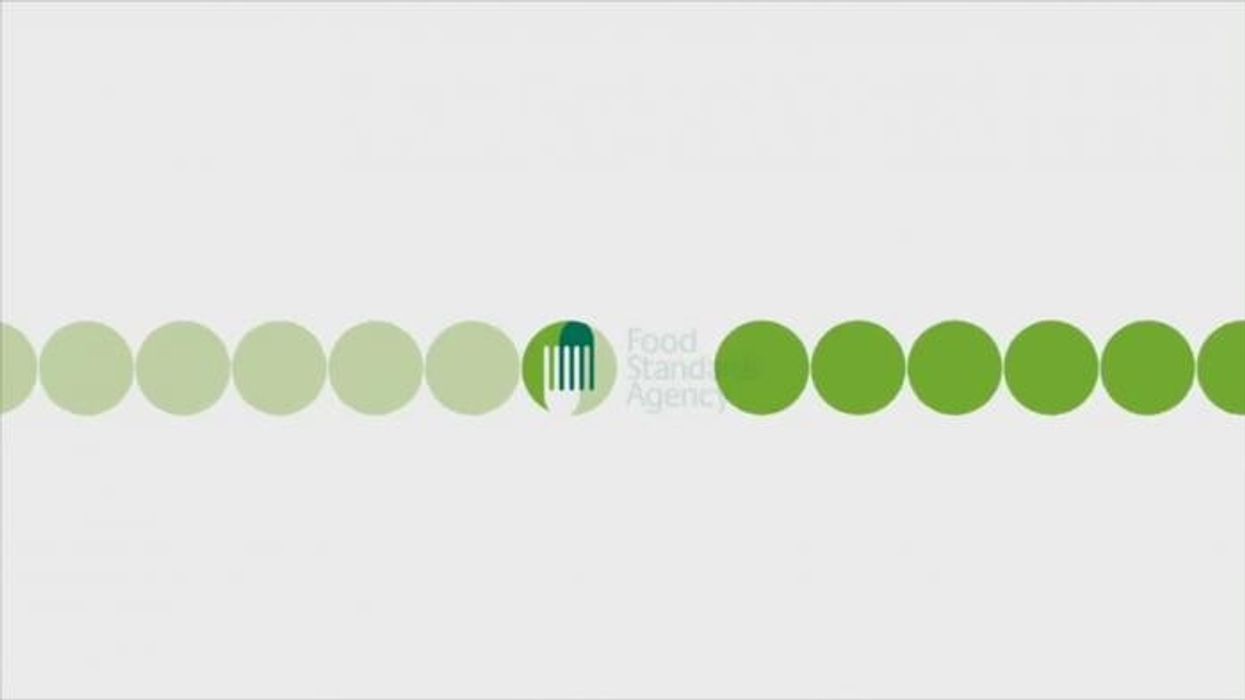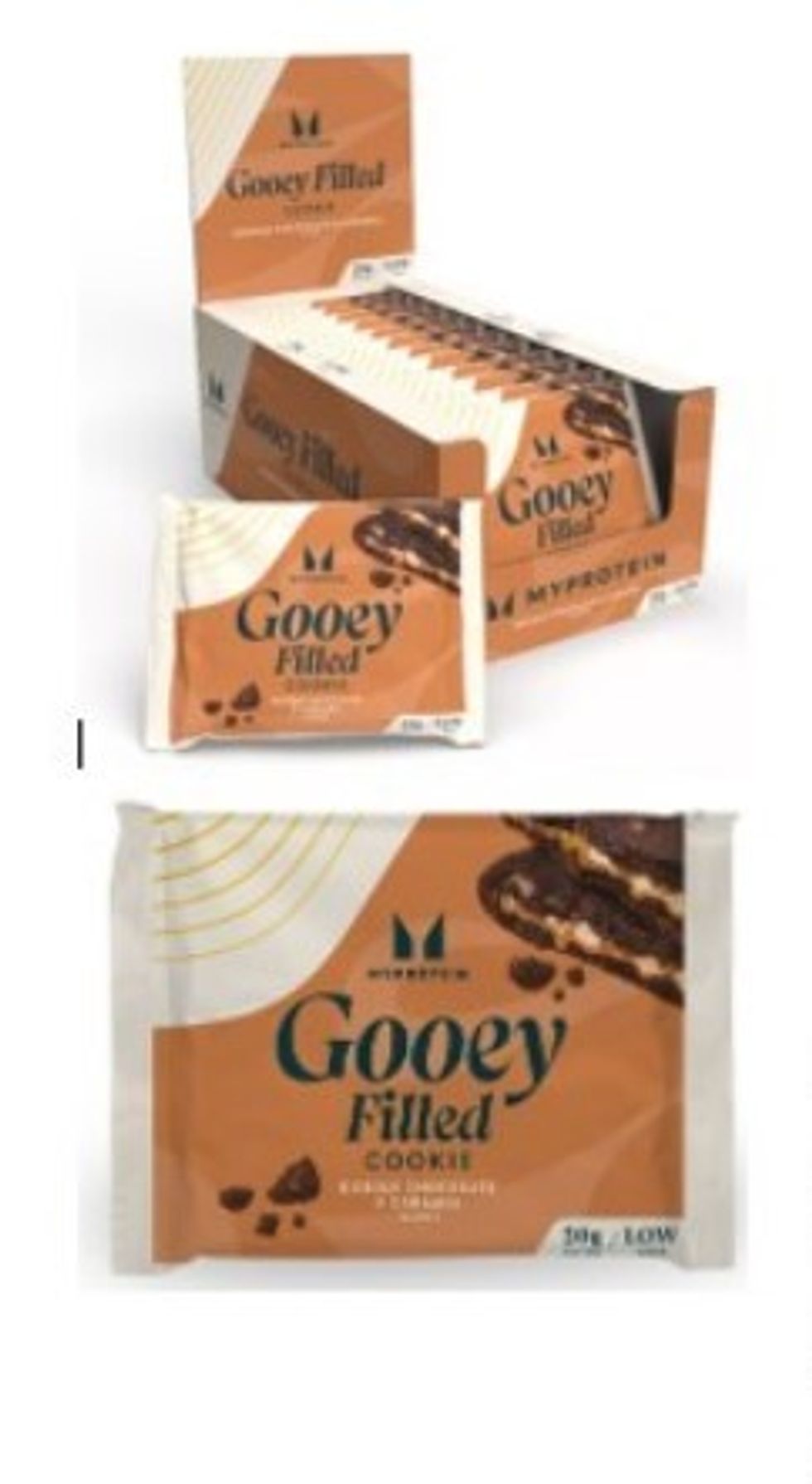'Do not eat it!' Urgent recall of popular biscuit that may cause abdominal pain, headaches and brain fog

Before dining out, Britons should check the food hygiene rating for their chosen establishment
|Food Standards Agency

It poses a health risk to anyone with coeliac disease, and/or an allergy or intolerance to wheat or gluten
Don't Miss
Most Read
Shoppers with coeliac disease or wheat allergies have been alerted to a product recall affecting a popular protein snack.
THG Nutrition Limited is recalling its Myprotein Gooey Filled Cookie in Double Chocolate & Caramel because it contains wheat (gluten) that isn't mentioned on the label. Myprotein is a leader in sports nutrition.
Myprotein Gooey Filled Cookie, Double Chocolate & Caramel
Pack size: 75g (Single Cookie) and 12X 75g (Box of 12)
Batch codes: All codes
Best before: June 17, 2025 to July 16, 2026

Myprotein Gooey Filled Cookie in Double Chocolate & Caramel contains wheat (gluten)
|THG Nutrition Limited
The Food Standards Agency (FSA) warned consumers that this poses "a possible health risk to anyone with coeliac disease, and/or an allergy or intolerance to wheat or gluten".
THG Nutrition Limited has taken immediate action by recalling the product and contacting relevant allergy support organisations to spread awareness.
The company also issued notices to customers explaining why the product is being recalled and provided instructions for affected shoppers.
Consumers who have purchased the cookie and have coeliac disease or wheat/gluten allergies were advised "do not eat it". Instead, they should return the product to the store where it was purchased for a full refund.
Customers requiring further information can telephone 0800 260 6946, Monday to Friday between 8am and 4pm. Outside these hours, they can leave a voicemail with their contact details. Alternatively, shoppers can email qualityassurance@thehutgroup.com at any time.
For information on gluten intolerance and coeliac disease, health insurance company Bupa provides detailed information. For information on wheat allergy, consult Allergy UK's dedicated guidance.
Gluten intolerance
Gluten is a protein found in foods that contain wheat, barley and rye, with common sources including bread, pastries, cakes, pasta, pizza bases, and biscuits.
Experts explained that "gluten intolerance is when your body reacts badly to gluten". Symptoms are similar to those of irritable bowel syndrome (IBS) and coeliac disease. Gastrointestinal symptoms include abdominal pain, bloating, diarrhoea, and constipation.
Non-gastrointestinal symptoms include headaches, tiredness, brain fog, joint and muscle pain, and skin rashes.
Coeliac disease
Coeliac disease is an autoimmune condition, meaning "your body's immune system mistakenly attacks your own healthy tissue". If you have coeliac disease, this reaction happens when you eat gluten.
Wheat allergy
Referring to IgE-mediated allergy (immediate), experts explained that allergic reactions to wheat and other cereals are most common in children, although they can also develop in adults.
Symptoms can occur from within minutes to up to two hours after ingestion and include rhinitis, asthma, hives (urticaria), swelling (angio-oedema) or anaphylaxis. There may also be vomiting, diarrhoea, abdominal pain, and a flare-up of eczema.
It's important to note that anaphylaxis is incredibly serious. As described by the NHS, anaphylaxis is a "life-threatening allergic reaction that happens very quickly". Call 999 if you think you or someone else is having an anaphylactic reaction.
This recall comes as milk sold in Northern Ireland was pulled from shelves over possible contamination with deadly bacteria.
Officials fear it may contain Shiga-toxin producing E. coli (STEC). Implicated products should be "returned or destroyed".
LATEST DEVELOPMENTS:
 Milk sold in Northern Ireland has been recalled over contamination fears | GETTY IMAGES
Milk sold in Northern Ireland has been recalled over contamination fears | GETTY IMAGESThe FSA explained why allergy alerts are issued. Food and product recalls must always be taken seriously to ensure customer safety.
About allergy alerts
"Sometimes there will be a problem with a food product that means it should not be sold. Then it might be 'withdrawn' (taken off the shelves) or 'recalled' (when customers are asked to return the product).
"Sometimes foods have to be withdrawn or recalled if there is a risk to consumers because the allergy labelling is missing or incorrect, or if there is any other food allergy risk. When there is a food allergy risk, the FSA will issue an Allergy Alert."










